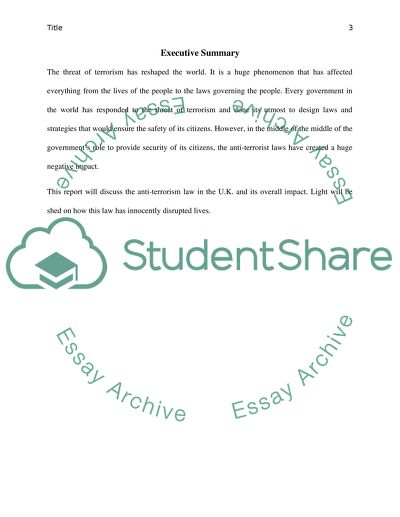Cite this document
(“The anti-terrorism law in the U.K. and its overall impact Coursework”, n.d.)
Retrieved from https://studentshare.org/history/1464972-write-a-detailed-report-summarising-the-issues
Retrieved from https://studentshare.org/history/1464972-write-a-detailed-report-summarising-the-issues
(The Anti-Terrorism Law in the U.K. And Its Overall Impact Coursework)
https://studentshare.org/history/1464972-write-a-detailed-report-summarising-the-issues.
https://studentshare.org/history/1464972-write-a-detailed-report-summarising-the-issues.
“The Anti-Terrorism Law in the U.K. And Its Overall Impact Coursework”, n.d. https://studentshare.org/history/1464972-write-a-detailed-report-summarising-the-issues.


